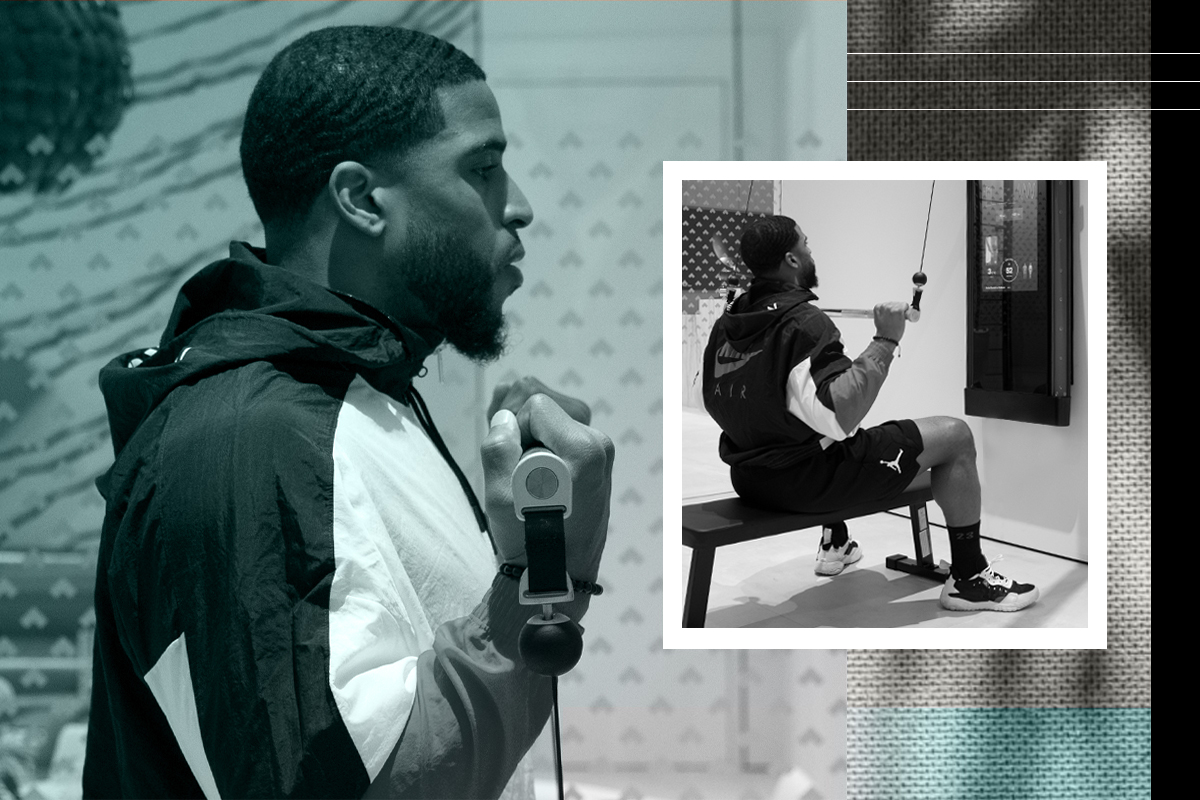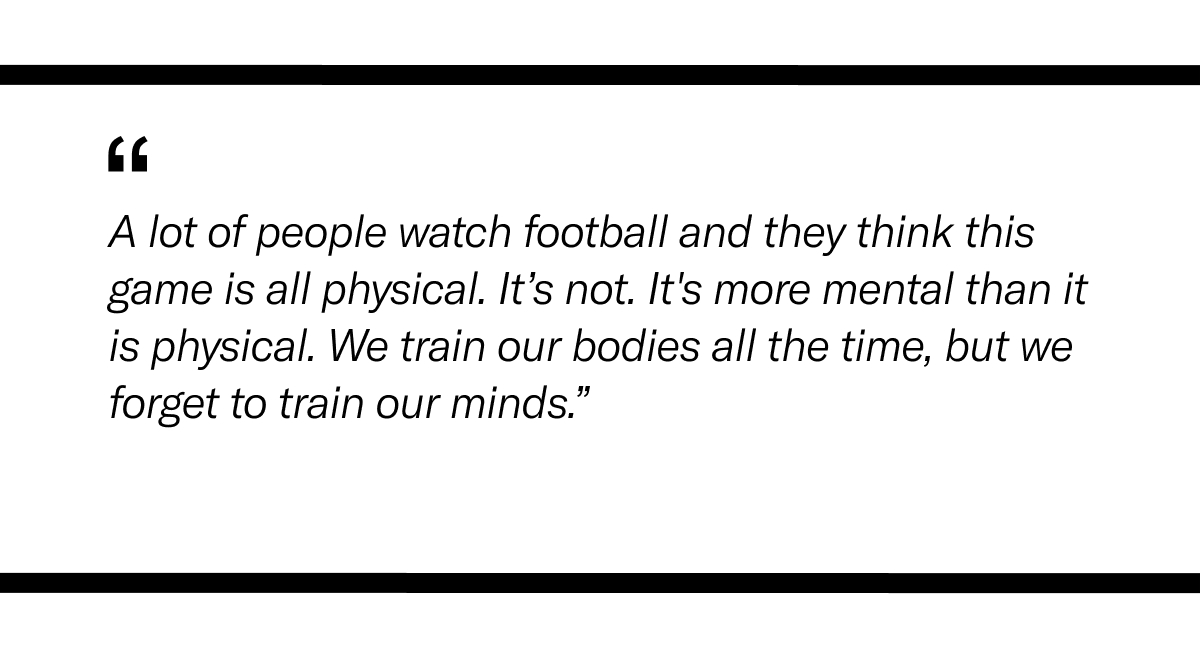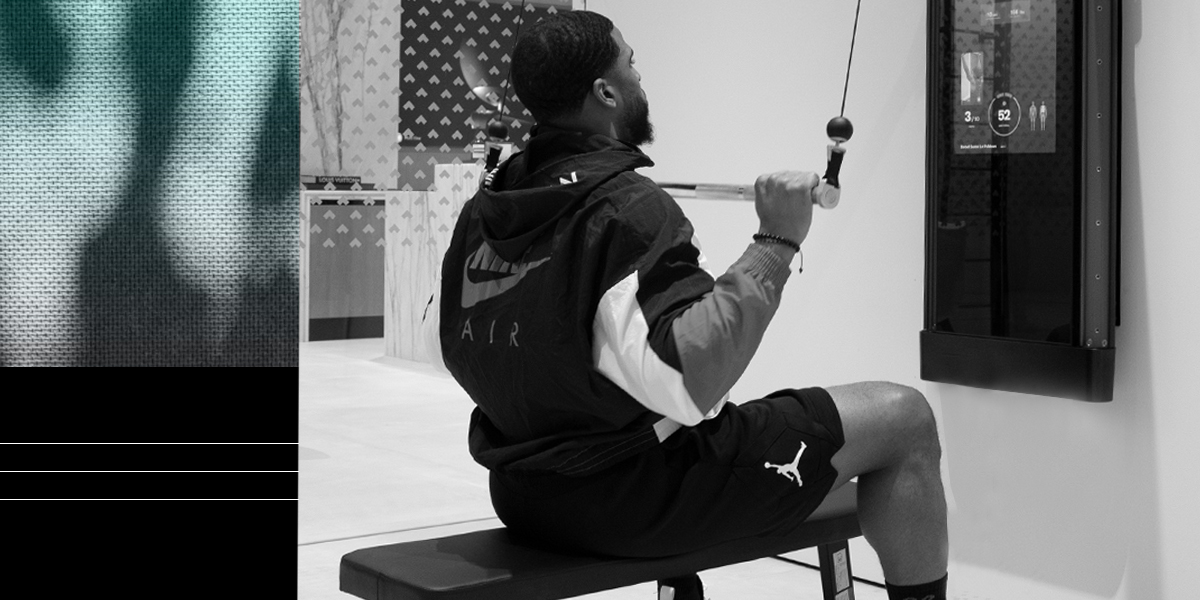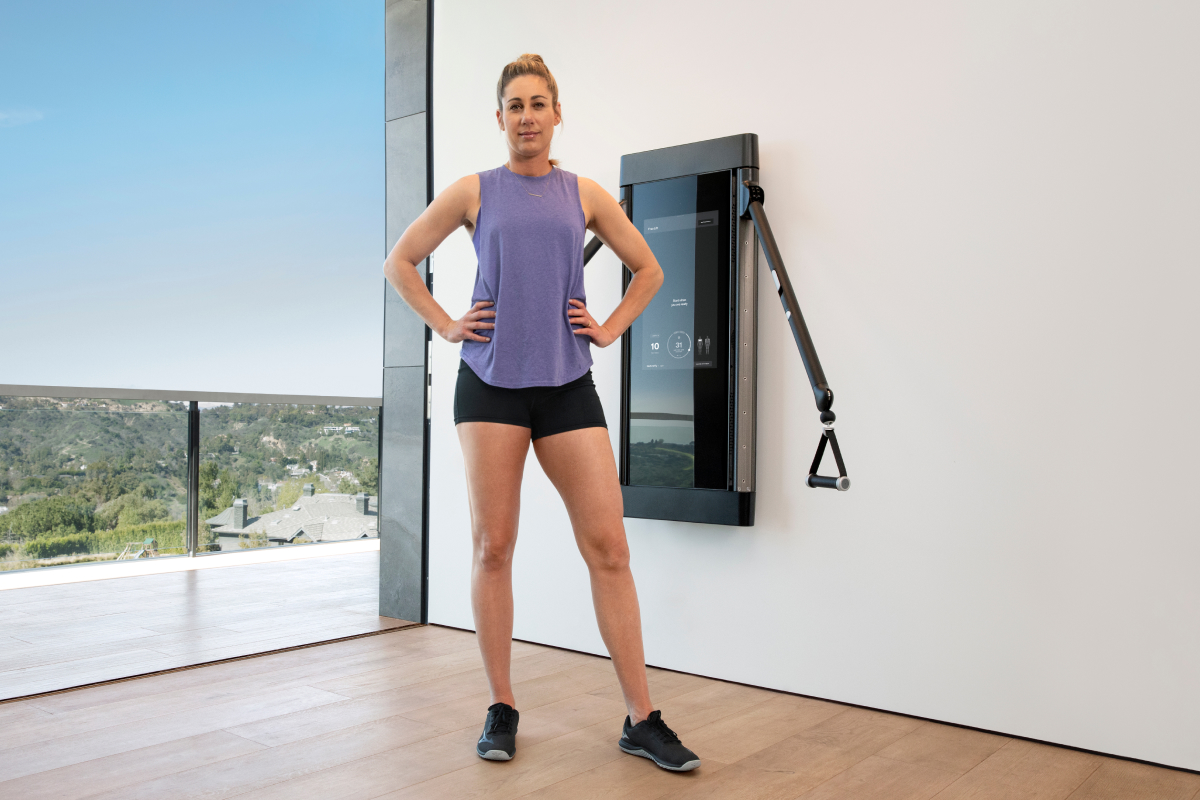Here’s why this top linebacker combines strength work with yoga and meditation.

Back in January, middle linebacker Bobby Wagner attempted to change directions on a screen pass in a game and ended up in a split. While he suffered a swollen knee and missed the last game of the season, the consequences could have been much worse had he not been so limber.
The 31-year-old can thank his multi-faceted approach to training for that durability. He practices yoga for mobility, lifts weights to build strength, boxes to develop his footwork, hops on the bike for cardio, and plays basketball to stay agile and reactive.
“Anything that can challenge my body so my body doesn’t get used to just one thing,” he told Tonal in an exclusive interview.
With eight Pro Bowls and a championship ring under his belt, he clearly has a winning strategy. Yoga, in particular, is something that Wagner, a 10-year veteran of the league, credited with elevating his game and contributing to his longevity. On the field, Wagner has found himself increasingly more flexible since starting his yoga practice. He’s able to twist and turn his body in ways that previously might have led to serious injury.
“I just started to notice that my yoga practice was helping me by strengthening areas of my body that I may not have focused on when I was working out, like my hips, and having flexibility in my quads,” explained Wagner, who led the league in tackles in 2016 and 2019.

Wagner keeps a similar training schedule during the season and offseason, saying he prefers having consistency. He also eats clean, choosing an intuitive self-disciplined approach to food versus counting calories or macros. “I don’t eat until I can’t eat anymore,” he said, adding that his diet largely consists of oatmeal, greens, and proteins like steak, chicken, and salmon.
When your body is the breadwinner, helping it operate like a well-oiled machine becomes table stakes. But these days, Wagner is just as focused on feeding his mind.
“A lot of people watch football and they think this game is all physical. It’s not. It’s more mental than it is physical,” he said. “We train our bodies all the time, but we forget to train our minds.”
He made waves by taking a more intellectual approach to his weekly media sessions, talking about topics outside of football such as what he’s reading, financial literacy, and mental health. One Seattle Times columnist called it “one of the most unusual and thought-provoking player-media interactions I’ve experienced in a four-decade career.”
Wagner is also passionate about the power of meditation. “I started to meditate to strengthen my mind,” said the linebacker, who turns to Tonal for both strength training and meditation sessions.

He initially had his own misconceptions about meditation, thinking that it wasn’t for someone like him. Now, he wants to dispel myths about what meditation looks like, and, as someone who has faced anxiety, spread the word that anyone can benefit from the practice.
“[Meditation] is about being present in the moment. It’s about controlling your thoughts. I think a lot of times, people have anxiety because they have trouble quieting that voice inside their mind,” said the six-time First-Team All Pro player. “We’re human; we have all this stress; we have all these worries. What you can control is what you’re doing right now, how you flow. That’s the practice: How do I bring myself back when I’m struggling?”
What every professional athlete wants is to achieve greatness. As he prepares to play for Los Angeles, Wagner’s thoughtful, holistic approach to physical and mental self-care continues to be integral to his success.
“Greatness is your own definition,” he said. “I don’t really compare myself to anybody. Greatness to me is, did I maximize my talent in the window that I had? Greatness to me is having that focus, having that dedication, to reach your full potential for a long period of time.”


